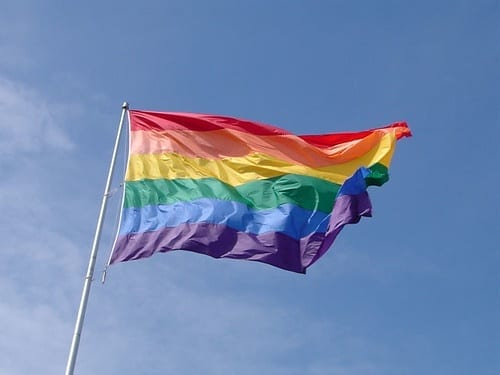How UT’s LGBTQ+ community is affected by RBG’s death and the Supreme Court
The University of Tennessee’s Pride Center faces some new challenges in 2020.

Photo of the LGBTQ+ Pride Flag.
Questions about the security of rights for members of the LGBTQ+ community have resurfaced. This is due to the nomination of Conservative judge Amy Conan Barett to fill the recently deceased Ruth Bader Ginsburg’s chair on the Supreme Court. Once again, this community is surrounded by the fear of losing rights they have worked hard to attain and rights they still have yet to be granted.
The University of Tennessee’s Pride Center is working to negate these fears and try to create a space of security and belonging for UT students.
New Challenges
The Pride Center looks a little different in 2020. They have opted to conduct their programs and events entirely online to help reduce the spread of COVID-19.
“For Fall 2020, we have prioritized the health of our campus community and have made our programming entirely virtual, which has its obvious downsides but has also challenged us to be creative with engagement, education and connection,” Bonnie Johnson said.
Johnson is the director and coordinator for the Pride Center and was hired in 2017. She helps fulfill the mission of the Pride Center; ‘to provide academic and social support for LGBTQ+ community at the University of Tennessee, Knoxville.’
COVID-19 is not the only challenge that the Pride Center has had to face this year. The 2020 edition of The Princeton Review’s LGBTQ+ most unfriendly schools for LGBTQ+ students, bumped UT from third to second. These rankings are based on the opinions of the students who attend the universities.
“The ranking is unfortunate because I think it leaves out the important work and progress that the Pride Center and other areas of campus have made over the last several years,” Johnson said. “What is important to focus on is progress for LGBTQ+ support is a two-prong effort: individual-to-individual support AND systemic changes. We have to tackle both at the same time for effective and lasting progress. I’m hopeful we can continue to make strides in both areas in the coming years.”
The ranking does not apply specifically to the Pride Center, but the atmosphere of the university as a whole. It is a challenge that the Pride Center has to help students with.
New Programming
Some of the programs and events hosted by the Pride Center go a long way to help the LGBTQ+ community feel welcome on campus. This includes virtual office hours, a virtual lounge and much more. Johnson expressed her excitement for the virtual reading group that the Pride Center has featured this year.
“The one I am personally excited about is our LGBTQ+ Reading Group. We sent out over 85 copies of author and activist Janet Mock’s first book, Redefining Realness, to students with plans to meet up virtually later this semester to discuss the book’s major themes and how UT can do more to support trans people of color,” Johnson said.
Many of the programs, like the SafeZone at UT, the annual Transgender Day of Remembrance Vigil, National Coming Out Day ice cream social and more are open to the entire UT community. This helps to spread awareness of the LGBTQ+ community and works to combat negativity on campus.
“We need more members of the UT community to take advantage of these opportunities for connection and education in order to create a more inclusive and affirming campus for the LGBTQ+ community,” Johnson said.
UT has also launched recent initiative programs such as the Vol Is A Verb Campaign to help UT students realize they matter and belong.
The Pride Center’s Pride List is also set to launch Oct. 7 on their website and the Daily Beacon. The Pride List is a list of signatures collected from LGBTQ+ students and allies to raise awareness for the community. The list aims to remind the LGBTQ+ community on campus that they are not alone.
The Same Goal
As a marginalized and disrespected group in America and much of the world, spaces like the Pride Center are essential in reminding members of the LGBTQ+ community that they matter and belong. While the Pride Center is facing new challenges, its ultimate goal is the same. To help students recognize their uniqueness and know that they belong. The Pride center celebrated its 10th anniversary this past February.
“The Center, from a unit perspective, is a key part of many LGBTQ+ students’ experience here at the university, often as one of their very first touchpoints for identity development, making close friendships, and overall community-building. Even if LGBTQ+ and ally students aren’t regulars to our lounge, I know our advocacy and education efforts have a ripple effect that improves our campus climate and positively impacts their time here at UT,” Johnson said.
Edited by Christian Knox and Ryan Sylvia
Featured Photo Courtesy of Creative Commons

